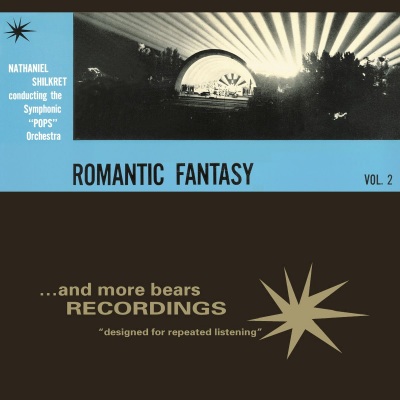当前位置:首页 >> Vol. 2, Romantic Fantasy >> 歌曲列表 第1页

Vol. 2, Romantic Fantasy
The origin of gypsies is shadowed in the vastness of ancient history, but some authorities believe them to be of Egyptian or Indus lineage. Wherever these nomads travelled, they had the remarkable ability to absorb the musical spirit of that country, embellishing its folk tunes with their own sensuous, richly ornamented, improvisational performing art. Gypsies are known by many names: In Germany they are called ‘Zigeuner’; in Italy, ‘Zingaro’; in Spain, ‘Gitano’; in Hungary, ‘Tzigan’; in the Netherlands, ‘Heiden’; and in Denmark and Sweden, ‘Tatern’. In many instances, their music embraces the same characteristics – themes of heroic times, of love and death, of contrasting moods – sometimes fiery and volcanic, often dreamlike and romantic. It is this contrast of intoxicating illusion and vigorous, artistic spirit that “pervades” in ‘Romantic Fantasy’, an album of melodious and rhythmically exciting selections performed by the Symphonic “Pops” Orchestra, under the direction of Nathaniel Shilkret. Shining Moon Medley introduces us to the tempestuous celebrations of a gypsy fete day replete with vibrating tambourines and the captivating merriment of an opulent era. Part of the times, too, was the popular Hungarian gypsy music heard in cafes, hotels and restaurants. One of the favorite tunes played by these combos was the salon piece, Mimi, which the orchestra offers in waltz time here. Midnight is in a similar soft, tropical moonlight mood presented in the inimitable Shilkret style of relaxation and melodic pleasure which helps to unite a gypsy serenade and tango rhythms at the witching hour. The title tune, Romantic Fantasy, clearly personifies the dreamy and ethereal atmosphere of gypsy music with its varied tempi and exquisite tonal coloring. It is followed by another gypsy fantasy, Hejre Kati, from the famous series ‘Scenes From The Czarda’ by Jeno Hubay, an Hungarian violinist, composer and conductor. Toscha Samaroff is the virtuoso soloist who shares the spotlight with the “cimbalom,” a traditional gypsy instrument. Side Two fittingly begins with a selection by Franz Liszt, the romanticist who became enthralled by gypsy music and its traditions. Hungarian Rhapsody No. 6 is a flashing display that starts with a triumphal theme, blends into a tender interlude, and then leads to a piano cadenza and a galloping crescendo finish. Tea Leaves, which follows, has a gypsy fortune teller foresee a beautiful blend of lush, lovely strings, echoing French horns and an intriguing mood piece melody. The pleasures of gypsy life are spelled out for us in the spontaneous and scintillating excerpt from Victor Herbert’s operetta, ‘The Fortune Teller,’ in which soprano Yvonne Ciannella and a male chorus offer the dashing Romany Life. The nomadic heritage of the gypsies is brought to life in the meandering, moody and brilliant waltz called, My Gypsy Vagabond. Hungarian Capriccio, by noted composer Eugen Zador, closes side two. It is a symphonic excerpt which, again, highlights the ever-present contrast of lovely running motif and a slower, sadder Hungarian theme.
专辑歌曲列表
共有10首











